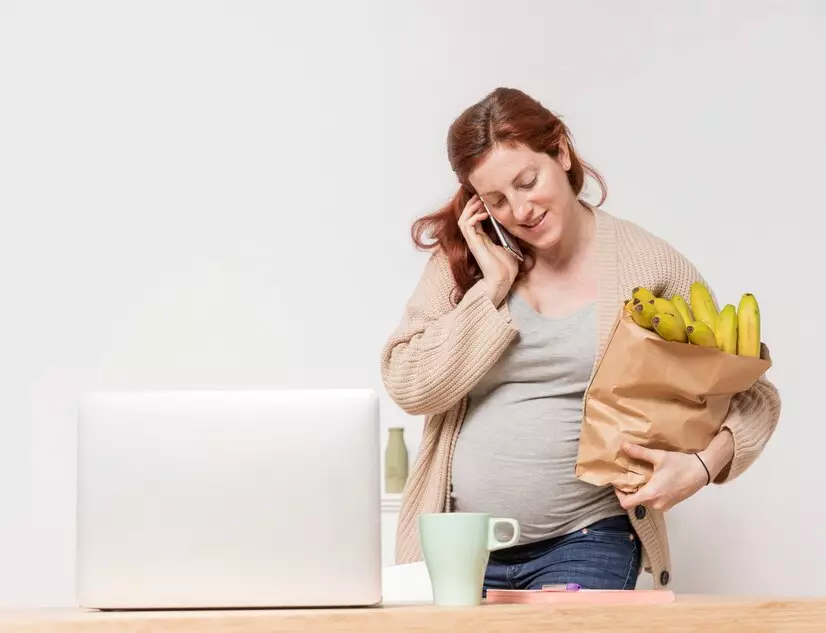Brilio.net - Iron is an essential mineral needed by the body to produce hemoglobin, a protein in red blood cells that is responsible for carrying oxygen from the lungs to the entire body. For pregnant women, the need for iron increases significantly because the body needs to support the growth of the fetus and placenta, as well as prepare the body for blood loss during labor.
Iron helps prevent anemia, a condition in which the body lacks healthy red blood cells, which can leave pregnant women feeling tired, weak, and easily sick. Unfortunately, a study in The American Journal of Clinical Nutrition found that of 641 pregnant women at 15, 20, and 33 weeks of gestation, more than 80% were considered iron deficient during the third trimester.
In fact, pregnant women need about 27 mg of iron per day, higher than women who are not pregnant. In addition to being obtained from foods such as red meat, green leafy vegetables, and nuts, iron supplements are often recommended to ensure these needs are met during pregnancy.
Further in Well and Good, obgyn Sherry Ross MD, explains tips for making iron pills more effectively absorbed by taking them with vitamin C supplements. So how do you maintain your body's supplementation during pregnancy? Let's see the full review below! which is adapted by brilio.net from various sources, Saturday (28/9).
How to maintain body supplements during pregnancy

photo: freepik.com
Maintaining health during pregnancy is very important, especially in terms of ensuring the body gets enough iron. Iron deficiency can cause anemia, which affects both the mother and the fetus. To avoid iron deficiency, there are several steps that can be taken to maintain a balance of nutrition and supplements, including:
1. Eat foods rich in iron
One of the main ways to maintain iron levels is through food. Iron can be found in two forms, namely heme iron and non-heme iron. Heme iron is more easily absorbed by the body which is found in animal products such as red meat, chicken, and fish.
Based on research from the American Journal of Clinical Nutrition, it shows that heme iron has a higher absorption rate compared to non-heme iron, so it is important to include meat in the diet during pregnancy.
Non-heme iron, which comes from plant sources such as green leafy vegetables, nuts, and seeds, is also important but is harder for the body to absorb. To increase the absorption of non-heme iron, combining these foods with vitamin C, such as citrus fruits or bell peppers, can help the body absorb the iron better.
2. Take iron supplements as recommended by your doctor.
In addition to food, pregnant women are often advised to take iron supplements. The need for iron during pregnancy increases twofold because the body must support the production of extra blood for the fetus. A study published in the Cochrane Library found that regular consumption of iron supplements can significantly reduce the risk of anemia in pregnant women.
However, supplements should not be consumed carelessly. It is better to consult a doctor about the right dosage because excessive iron consumption can cause side effects such as constipation or nausea. The doctor will adjust the dosage based on the body's condition.
3. Avoid foods that inhibit iron absorption.
Some types of food can inhibit the absorption of iron in the body. For example, calcium found in dairy products, tea, and coffee can reduce the absorption of non-heme iron if consumed with iron-rich foods. According to research from The American Journal of Clinical Nutrition, consuming calcium and tea can reduce the body's ability to absorb iron by up to 60 percent.
To avoid this problem, it is recommended to consume iron-rich foods at different times than foods or drinks containing calcium. For example, drink milk at least one or two hours after eating iron-rich foods so that absorption remains optimal.
4. Stay well hydrated
Adequate water intake is also important during pregnancy, especially if you are taking iron supplements. These supplements can cause side effects such as constipation, so staying hydrated can help prevent digestive problems.
A study in the Journal of Obstetrics and Gynecology Research shows that adequate water intake can help increase metabolism, making it easier for the body to process iron. Pregnant women are advised to drink at least 8-10 glasses of water per day. In addition to water, fluids such as fruit juices rich in vitamin C can also help increase iron absorption.
5. Regularly check iron levels
Regular blood tests are an important step to monitor iron levels in the body. This test allows doctors to detect iron deficiency early, so that preventive measures can be taken early.
According to the World Health Organization (WHO), pregnant women who regularly check their iron levels are less likely to experience severe anemia complications during pregnancy. If iron deficiency is found, the doctor may recommend dietary changes or increase the dose of supplements according to individual needs.
6. Maintain nutritional balance by consuming vitamin C.
Vitamin C plays a vital role in helping the body absorb iron, especially non-heme iron from plant sources. Adding vitamin C-rich fruits, such as oranges, kiwis, or strawberries, to your diet can help boost iron absorption. According to the Nutrients Journal, consuming vitamin C significantly increases the absorption of non-heme iron, making it an essential nutrient for pregnant women who want to prevent anemia.
(brl/lea)